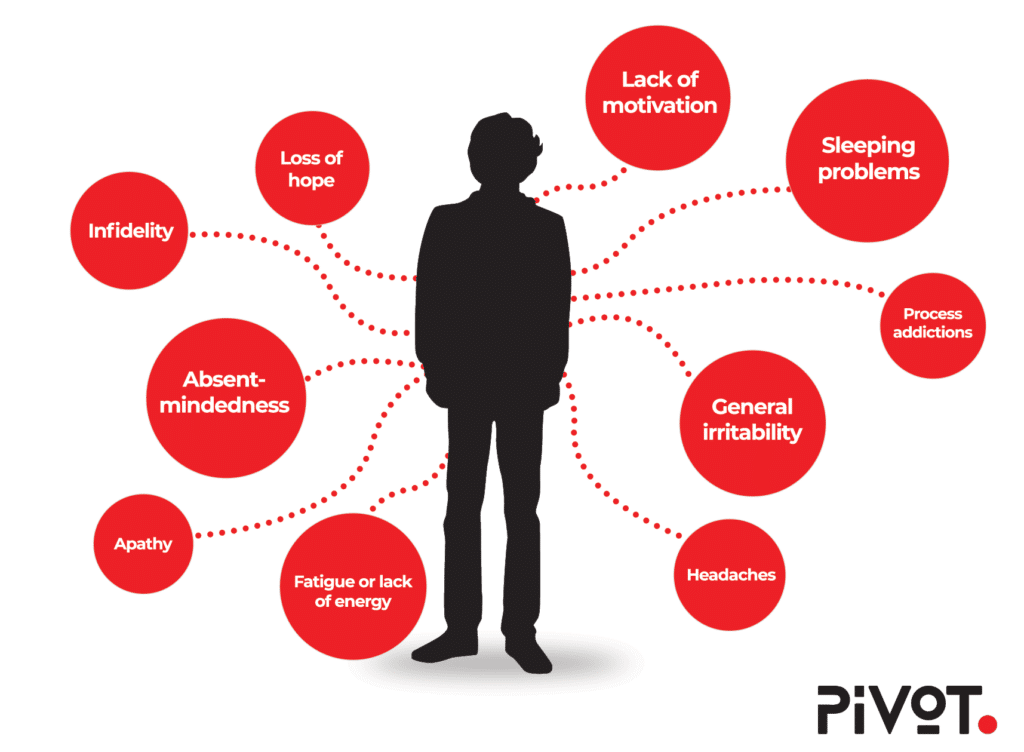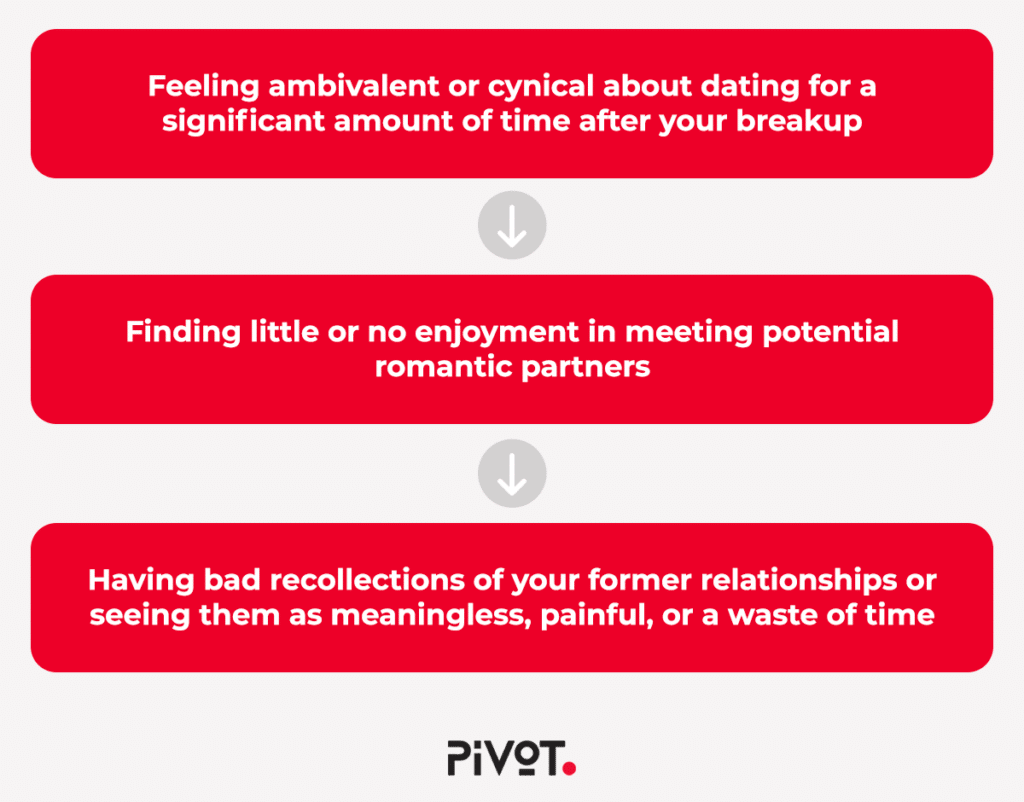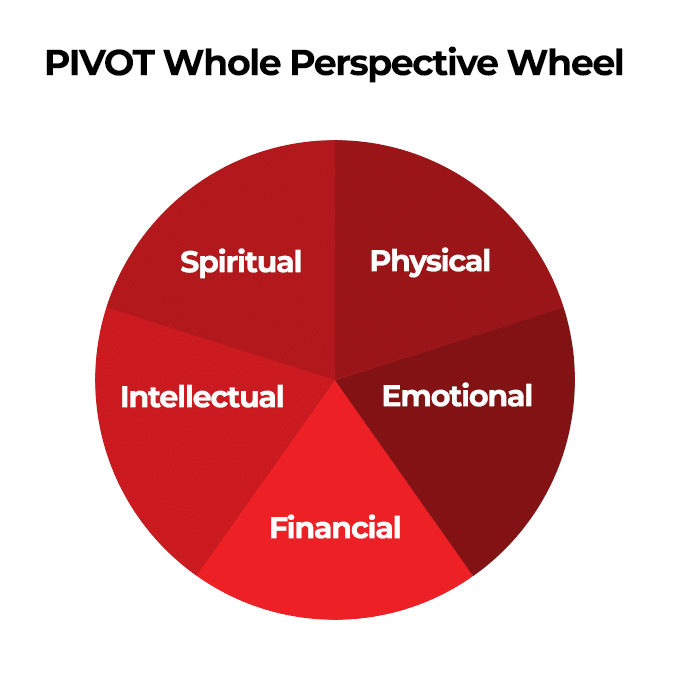Are you feeling like you just don’t want to be in your relationship anymore? Do you find yourself making up excuses to avoid your partner? Are you feeling bored or uninspired? Maybe you’ve noticed yourself eating or shopping more to fill the void that your relationship is creating. Or, maybe you and your partner are dealing with infidelity or major life stressors that are tearing you two apart.
In our relationship coaching practice, we’ve worked with so many long-term couples, and we can tell you with certainty that no couple gets to the finish line without a few fights and hard conversations along the way. During the course of a long relationship, there’s usually a challenge that can lead couples to question their feelings or even experience relationship burnout. The good news is that this doesn’t have to mean the end of your relationship; in fact, with the right support and some hard work, it can be the beginning of a happy new chapter.
In this article, you’ll learn how to recognize signs of relationship burnout, what causes it, and how to overcome it so you can begin working towards a healthier relationship.
Are You Feeling Burnt Out in Your Relationship?

If you are reading this, you might be feeling overwhelmed, tired, or confused about your relationship. Coming to terms with feeling burnt out in a relationship can be distressing. You might be worried you are hurting your partner or yourself and what to do about it.
Similar to career burnout, relationship burnout manifests as a period of intense psychological and physical exhaustion. It is often the result of one of the partners providing love, care, and support but not receiving the same amount of attention in return. It can also be an outcome of bitter conflicts and heated arguments between partners or general disappointment with how the relationship is going. It may feel like the excitement and jubilance of romantic love have faded away, leaving room for feelings of resentment. You might also just be bored and need to shake things up to add more excitement to your daily life.
If you are feeling burnt out, it’s important to recognize and validate these feelings, otherwise they might fester and develop into something more harmful. A great relationship coach can help you learn how to do just that.
Recognizing the Signs of Relationship Burnout
When you’re going through a rough period as a couple, you might feel like you’re at your breaking point. Although the symptoms of relationship burnout may vary from one person to another, here are some signs to look out for.

If you are struggling with these feelings, you aren’t alone. Many people go through feelings of burnout in the course of their relationship. Luckily, there are ways to work through it.
Burnout Doesn’t Have to Mean the End of Your Relationship
You’re likely to experience burnout at some point during the course of a long-term relationship. It doesn’t mean that you need to split up and start living separate lives. If you are feeling exhausted or detached, don’t waste time feeling guilty about it. Instead, get curious about your feelings. What are they trying to tell you?
Relationship burnout can serve as a wake-up call: a reminder to allocate time to care for your own needs, have an honest conversation with your partner, listen carefully, spend some quality time together, and relieve yourself of any tension that has built up.
Is Relationship Burnout After a Breakup Normal?
Burnout doesn’t just happen during a relationship, it can also happen after a painful breakup. After a separation, it’s easy to feel gloomy and cynical about love. You may feel like you just gave your all to a relationship, only to suffer the disappointment and heartbreak of it not working out.
You aren’t alone in this. Look for relationship burnout signs like:

This type of burnout is likely the effect of you trying to cope with the effects of emotional trauma. You’ll need time to recover – be gentle with yourself! You may also feel burned out from continuously choosing the wrong partners. If you have an avoidant attachment style and aren’t with the right type of partner, you’ll never be able to create healthy attachments. Spend some time reflecting on the Whole Perspective Wheel to decide what is most important to you in a partner and start honing your relationship-choosing radar.

We often enter relationships based solely on physical and emotional connections, overlooking key aspects like financial, intellectual, and spiritual compatibility. This can lead to unrealistic expectations of both the partner and the relationship. The Whole Perspective Wheel encourages us to view ourselves and our relationships holistically—through spiritual, intellectual, emotional, physical, and financial lenses. By exploring each of these elements, we gain a clearer, more realistic understanding of ourselves and others.
What Causes Relationship Burnout?
Whether you are experiencing burnout during or after a relationship, the first step to healing is to understand what causes relationship burnout in the first place. In terms of emotional investment, think of burnout as an imbalance between what you’re giving and what you receive in return. There are, of course, other factors that can contribute to the feeling of relationship burnout:
- A failed expectation that your relationship will give a more profound meaning to your life
- Unclear boundaries, lack of personal space, or time for self-care
- Cycles of repeated fighting, misunderstandings, and tension
- Periods of work or family-related stress, and lack of support between partners
- Boring or exhausting daily routines and incomplete assignments
- Certain patterns of relationship addiction, often manifesting as outbursts of jealousy, resentment, or helplessness

What to Do if Your Partner Is Emotionally Exhausting You
If your partner’s insecure attachment style is emotionally exhausting you, it’s crucial to prioritize your own well-being while addressing the situation constructively.
Once you figure out where you stand and exactly what’s been bothering you, have an honest, open conversation with your partner about how their behavior is affecting you. Use “I” statements to express your feelings without placing blame. Set clear boundaries around the kind of emotional support you can provide without depleting yourself, and be firm about maintaining those limits. Encourage your partner to seek outside support, such as therapy or counseling, to help manage their emotional load so the responsibility doesn’t fall entirely on you.
Remember to take time for self-care and reflection. Are there any behaviors you are exhibiting that could be causing your partner to feel anxious in the relationship? Ensuring you recharge and have the time and distance to gather your thoughts and feelings can help you maintain balance in the relationship as you work through this.
How to Deal With a Partner Who Is Burnt Out
As distressing as it is to feel burnt out in your relationship, it can be equally as distressing to hear your partner is the one feeling burnt out. Supporting a partner who is experiencing burnout requires empathy, patience, and open communication. Start by creating a safe space where they can express their feelings without judgment, as burnout often comes paired with emotional exhaustion and frustration with the relationship. Encourage them to take breaks and prioritize self-care, whether that means spending some time away from you, engaging in hobbies, or visiting friends.
Offer practical support by working on yourself to address any issues they’ve brought up about your relationship. Seeking professional help from trained relationship coaches is a valid and effective way to cope with burnout. Above all, show understanding, avoid adding pressure, and remind them that it’s okay for a relationship to go through rough patches as long as you both move forward together.
How Do You Heal Burnout in a Relationship?
If you and your partner are willing to work on your relationship after an emotionally tense and exhausting period, half the work is already done. Once you’ve agreed to work on your issues, you need to determine the root cause of your problems. To do this, you might need an expert outside opinion, like the relationship coaches at PIVOT.
Our relationship coaches can help you and your partner explore how you both feel and why, individually and together. Whether you’re recovering from a period of intense fighting or trying to rekindle your marriage after a period of separation, these are the tried-and-true tips we use in our coaching practice.
| Ways To Heal Burnout in a Relationship | |
| Take Care Of Yourself | Be mindful of your physical and mental health. Make sure to set aside time to take care of yourself: work out, meditate, visit friends and other family members, and enjoy your hobbies. Taking care of yourself helps you build resilience to handle future challenges. |
| Talk Openly | Communication is key to resolving any difficult situation. Open and honest conversation, without putting blame on the other person, will shed light on what is going on and how to fix it. |
| Practice Active Listening | Really listen to what your partner has to say; don’t just practice how you are going to respond in your head as they are speaking. And don’t assume you understand everything and that you mean the exact same things. Try to carefully paraphrase what they say and ask if you understood them correctly. |
| Confide in Each Other | Intimacy and confidentiality are some of the most important tenets of coupled life. When feeling emotionally drained, some people tend to seek support from friends, family members, and their children. While it might be perfectly okay to have some type of support outside of your relationship, keeping secrets from your significant other can create an atmosphere of mistrust. |
| Be Honest About Your Needs | Try to be frank with yourself and your partner when discussing your needs, whether it’s more personal space, more quality time together, or more support in sharing household and parental duties. |
| Show Appreciation | If you’re feeling fed up and frustrated with some of your rituals, talk to your partner and try to do something new and exciting. Start a new hobby together, find a new favorite place, or try new food. Whatever you do, just try to break your routines and surprise each other. |
| Introduce Variety | If you’re feeling fed up and frustrated with some of your rituals, talk to your partner and try to do something new and exciting. Start a new hobby together, find a new favorite place, or try new food. Whatever you do, just try to break your routines and surprise each other. |
Recover From Relationship Burnout With PIVOT
When you’re ready to work on your relationship, turn to PIVOT relationship coaching. Our expert coaches offer customized support and helpful tools to put your relationship on the path to recovery. We’re here to provide supportive and experience-based coaching and relationship retreats for couples who are ready to put in the effort to recover from relationship burnout.
Reach out to us at 1-855-452-0707 to transform your relationship.
